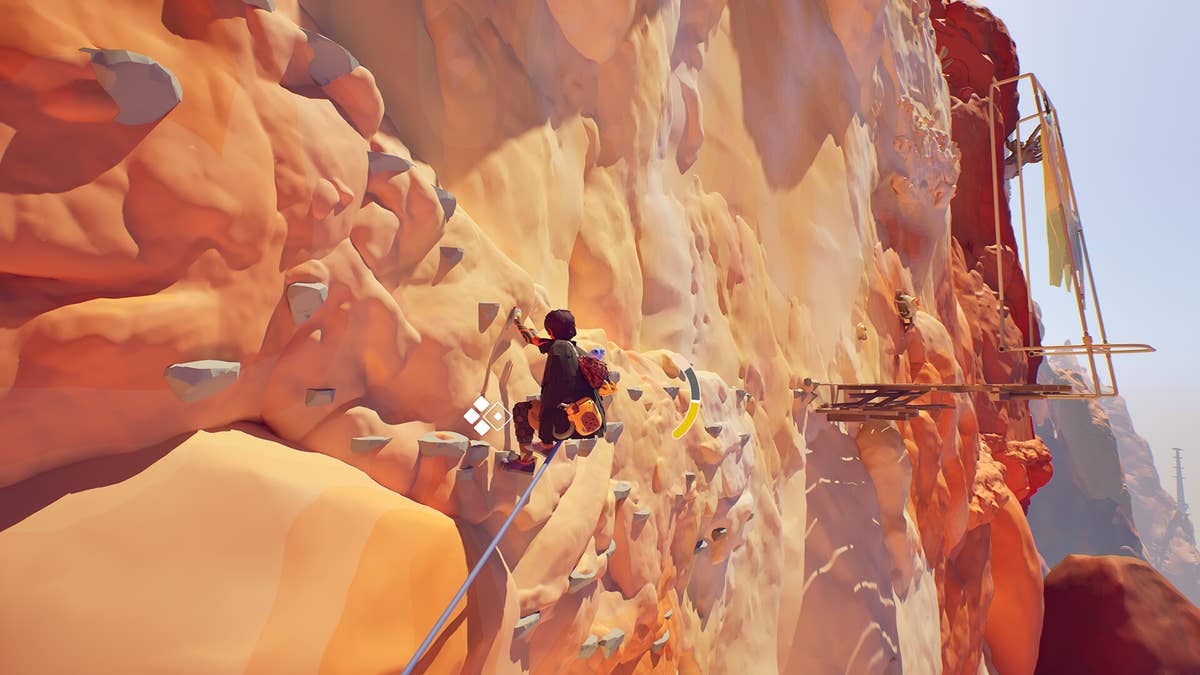Jusant: A Soothing Climb Through A Beautiful, Minimalistic World
 In a market saturated with fast-paced action and intense combat, Jusant offers something refreshingly different—a serene, meditative journey up an enormous, mysterious mountain. This indie title by Don’t Nod captivates through its tranquil approach to platforming, inviting players to scale cliffs and discover secrets without the urgency of conventional gaming goals. With its minimalistic style, thoughtful design, and calming atmosphere, it’s a rare and rewarding experience. Yet, the same factors that make it so distinct also reveal a few shortcomings, which may appeal differently depending on a player’s preference for fast versus slow-paced games.
In a market saturated with fast-paced action and intense combat, Jusant offers something refreshingly different—a serene, meditative journey up an enormous, mysterious mountain. This indie title by Don’t Nod captivates through its tranquil approach to platforming, inviting players to scale cliffs and discover secrets without the urgency of conventional gaming goals. With its minimalistic style, thoughtful design, and calming atmosphere, it’s a rare and rewarding experience. Yet, the same factors that make it so distinct also reveal a few shortcomings, which may appeal differently depending on a player’s preference for fast versus slow-paced games.
An Exquisite Visual and Sound Landscape
The visual design is one of the most immediately striking elements in Jusant, setting a high standard from the opening scene. The minimalist aesthetic—characterized by soft hues, fluid animations, and carefully crafted lighting—lends itself beautifully to the overall atmosphere, capturing a sense of awe and tranquility. Environments range from barren cliffs to verdant, moss-covered sections and eventually to ancient, surreal areas that speak to a world rich with mystery. While it doesn’t rely on hyper-realism, the game uses its art direction to immerse players in a soothing and yet surprisingly vivid world that feels both vast and intimate. Visit our sponsor : kour io and enjoy the full version of popular online game.
A significant part of this experience is the sound design, which works seamlessly alongside the visuals. The ambient sounds of birds, rustling leaves, and echoing winds create a natural, immersive backdrop for climbing. Music is used sparingly, allowing players to engage fully with the quiet, introspective vibe of the journey. User feedback has largely praised this approach, noting that the sound design complements the game’s meditative pace perfectly. However, some players mention that the lack of dynamic music leaves a sense of “emptiness” during longer climbs, where soft melodies could have heightened the mood.
Climbing Mechanics: A New Kind of Platforming
The game’s primary mechanic—climbing—is handled with a level of nuance and realism that isn’t commonly found in platformers. Using the triggers of the controller, players control each hand independently, requiring careful coordination and timing. This setup feels natural and intuitive, allowing for a more tactile experience as players grapple with ledges, traverse ropes, and make steady progress up steep surfaces. The simple controls invite a focus on rhythm and pacing, which aligns with the meditative atmosphere of the game.
However, while the climbing is innovative, it may feel repetitive for some players. Since the game doesn’t feature a great deal of variety in its challenges, those looking for puzzles or complex platforming mechanics might find it somewhat one-dimensional after a few hours of gameplay. Some fans of traditional platformers might miss the thrill of quick reflexes or the diversity of obstacles that games in this genre usually bring. On the other hand, players who enjoy games as a form of relaxation, with minimal stakes or stressful moments, will likely find the climbing experience immersive and peaceful.
Environmental Storytelling: Subtle and Open to Interpretation
As players ascend, they’ll encounter subtle narrative cues that hint at the world’s backstory. This isn’t a game that holds the player’s hand with extensive cutscenes or character dialogue; instead, storytelling is delivered through the environment itself. Mysterious ruins, remnants of past civilizations, and small, handwritten notes offer clues to the mountain’s history and the people who may have inhabited it. It’s a quiet, interpretive approach that leaves much of the lore to the player’s imagination, encouraging them to piece together the puzzle as they climb higher.
Some players appreciate this storytelling method, feeling that it allows for a deeper connection to the world. Fans of environmental storytelling will likely enjoy poring over each detail and uncovering the story at their own pace. However, others may find this approach overly vague, feeling that the story’s subtleties don’t provide enough narrative reward for the effort required. This could make the experience feel sparse to those who prefer direct storytelling or character-driven narratives. Ultimately, whether the story resonates depends largely on the player’s preference for open-ended interpretation versus traditional plot structure.
A Unique Pace in a High-Speed Gaming World
Perhaps one of the most divisive aspects of the game is its pacing. By design, this title progresses at a leisurely pace, with no combat, time limits, or sudden shifts in difficulty. It’s a calm, almost meditative ascent up the mountain that invites players to engage with the game on their own terms. There’s no rush to reach the top, and no pressure to complete tasks within a certain timeframe. This unique pacing is a double-edged sword; while it provides a refreshing change from the high-intensity action common in modern gaming, it may not appeal to those seeking a dynamic experience with frequent rewards.
User reviews often highlight this aspect as both a strength and a weakness, depending on individual player preferences. Many appreciate the slower approach, describing the game as “therapeutic” and “relaxing.” Yet, there are players who find the pacing “too slow,” with some stating that the lack of urgency can lead to a feeling of monotony. For players who thrive on high-energy gaming, the game’s meditative qualities may feel tedious. It’s a game that benefits from a certain mindset—one that values the journey over the destination.
Replayability and the Question of Content Longevity
For those who resonate with the game’s atmosphere and mechanics, replaying the ascent may feel inviting, offering opportunities to explore missed secrets or approach climbs with a renewed sense of curiosity. However, its straightforward design and minimalist storytelling mean that replay value may be limited for some. Without the addition of new mechanics or an evolving storyline, some players might feel that the experience is “complete” after the first playthrough. While it provides a memorable journey, the game doesn’t necessarily encourage multiple replays in the way that more complex or choice-driven games do.
Player Feedback: A Spectrum of Reactions
Community feedback reflects a spectrum of reactions, with the majority praising the game for its peaceful atmosphere, innovative mechanics, and beautiful aesthetics. Players who enjoy slower-paced, introspective games are the most enthusiastic, often likening it to an art piece rather than a traditional video game. The climbing mechanic, though initially challenging for some, becomes second nature and is frequently highlighted as a rewarding part of the experience.
On the flip side, some players mention that the simplicity of the gameplay loop can feel repetitive. Climbing without much variety can lead to a sense of sameness, especially for players who may not find as much enjoyment in meditative gameplay. Others note that the environmental storytelling, while intriguing, lacks enough substance to keep them engaged through the entire journey. In essence, the player feedback boils down to a question of taste: those who embrace the calm and simplicity find it an exceptional experience, while others see it as limited in scope.
Final Verdict: A Meditative Experience with a Few Rough Edges
Jusant is a remarkable entry into the indie gaming world, capturing a unique experience that prioritizes atmosphere and mindfulness over action and complexity. Its climbing mechanic is a bold and effective choice, making players feel each pull and every foothold as they ascend a beautifully crafted mountain. The environmental storytelling and minimalist design offer a refreshing change, setting the stage for introspection and immersion in a world that speaks in subtle cues rather than overt narratives.
However, the game’s reliance on a single primary mechanic and a slow, steady pace may not appeal to everyone. Players who prefer fast-paced action or varied challenges might find it lacking in both excitement and complexity. Still, for those willing to embrace its quiet beauty and unique approach, Jusant offers a memorable journey that reflects the meditative side of gaming—a rare opportunity to appreciate the ascent itself rather than rush to the summit.